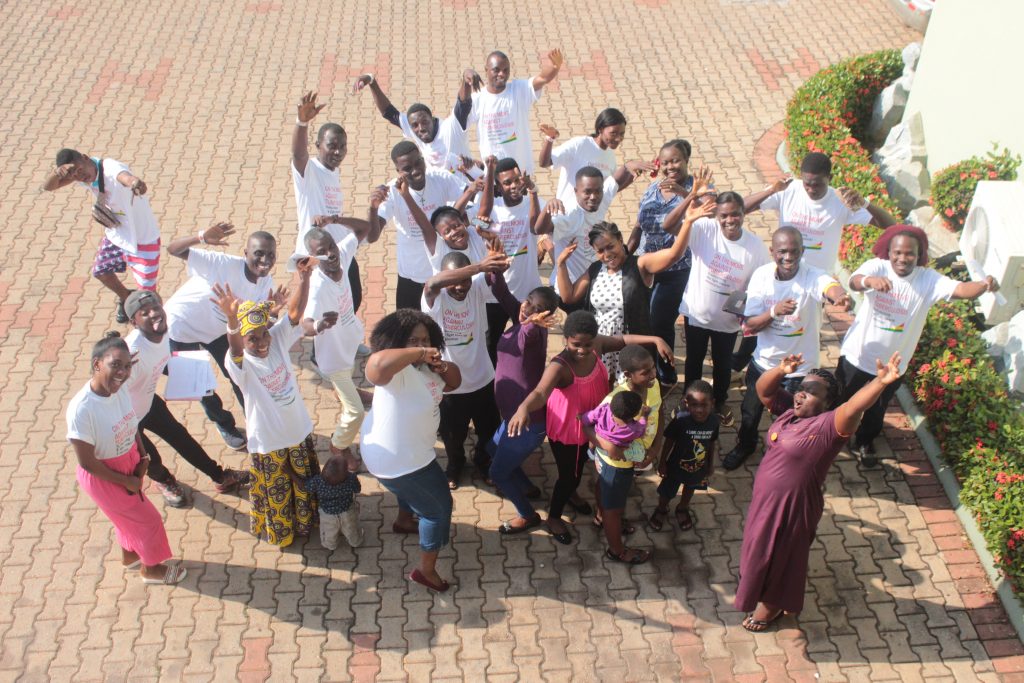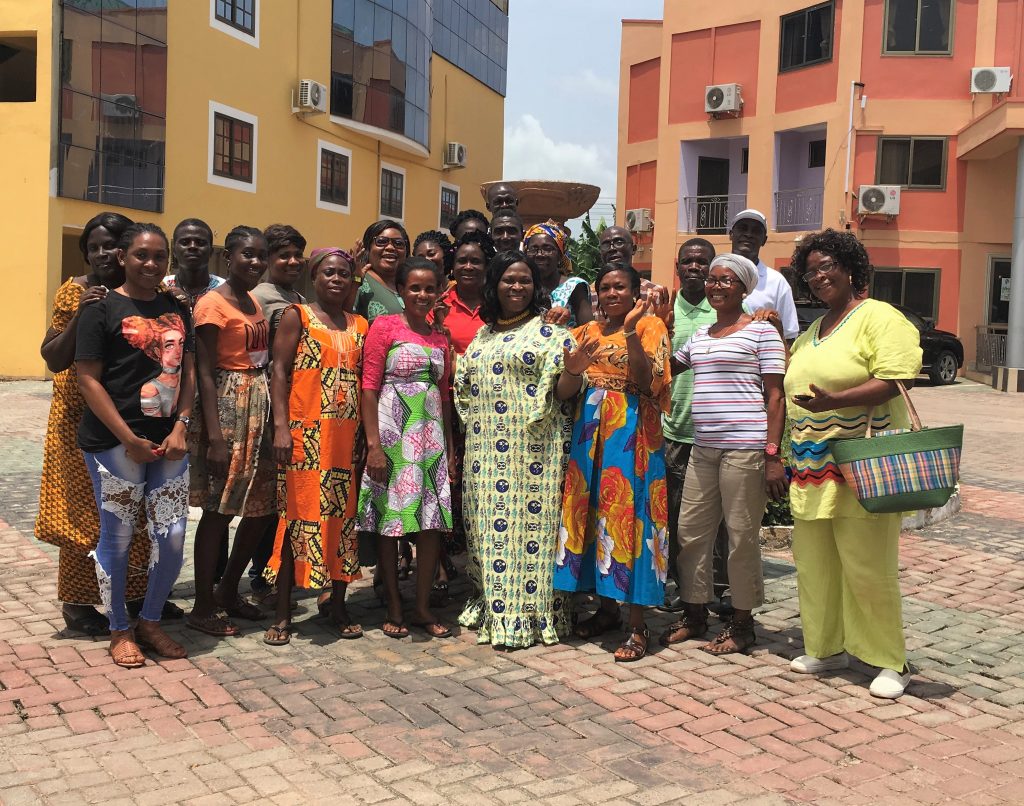
HOPE FOR FUTURE GENERATIONS IMPLEMENTS COMMUNITY SYSTEMS STRENGTHENING PROJECT OF THE GLOBAL FUND NFMII AS SUB RECEIPIENT
BACK GROUND
Communities, Civil Society Organisations (CSOs) and Community-based Organizations (CBOs) play an important role in the design, implementation, monitoring and evaluation of community-based HIV, TB and malaria interventions. Communities, CSOs and CBOs are expected to intensify these roles in efforts to attain Universal Health Coverage (UHC) and health security. To achieve UHC and health security, community involvement in the design of effective interventions, implementing and evaluating the robustness and quality of health services, creating demand for services and reaching those who do not always go to health facilities, especially key populations and the marginalized, is key.
Communities are also expected to be at the forefront of key interventions like health promotion, prevention, fostering healthy behaviors and reducing the demands on the health system. The Global Fund recognizes that systems for health that involve communities will always be the first to identify, report and respond to emerging threats and has over the years been pivotal in providing more systematic support to enhance and strengthen community systems. This support has worked to a large extent to strengthen health systems in general.
The recognition of the immense roles of communities in HIV, TB and malaria interventions nonetheless, are often under-supported. To consolidate gains made so far, the Global Fund, has through the Community Systems Strengthening (CSS) component of the Global Fund New Funding Model II (TGF NFM II) prioritized interventions that seek to strengthen existing community structures such as key populations, networks, CSOs, CBOs, public and private sector actors to positively respond to HIV, TB and Malaria interventions by increasing community participation, ownership and accountability in order to produce expected health outcomes.
Hope for Future Generations (HFFG) has been selected as a Sub-Recipient (SR) under WAPCAS to implement the CSS project leading to the achievement of the goal and objectives of the CSS program. HFFG has identified the following strategies in the implementation of CSS namely: collaborating with other NGOs/CSOs to implement programmes; engaging NGOs/CSOs/CBOs in the implementation of community-based interventions; formation and engagement of community-based support groups for implementation of community-based interventions; collaboration with other CSOs in CSO networks for lobby and advocacy; and engagement of key government and private sector actors for the provision of accessible and quality KP services.
Hope for Future Generations (HFFG) is a Ghanaian NGO that has been at the forefront of various CSS interventions in Ghana and has over the years gathered enormous expertise in CSS programming. HFFG is a member of several CSO networks such as the Ghana HIV and AIDS Network (GHANET), Coalition of NGOs in Malaria, Coalition of NGOs in Health, SWAA Ghana and NSA Ghana. Our Executive Director is a core member of CSS advocacy groups in Ghana and beyond. She is currently a substantive CCM member representing women and children. She is also a member of the TB and HIV oversight Committee of the Ghana CCM, as well as a technical advisor to the Society of Women and AIDS in Africa
The goal of CSS project under the Global Fund New Funding Model II (TGF NFM II) is to Scaling up quality HIV care cascade through community engagement and addressing human rights barriers. Also to develop the roles of key affected populations and communities, community organisations and networks, and public-or private-sector actors that work in partnership with civil society at the community level, in the design, delivery, monitoring and evaluation of services and activities aimed at improving health
Community systems strengthening initiatives aim to achieve improved outcomes for health interventions dealing with major health challenges, including HIV, tuberculosis and malaria, among many others. An improvement in health outcomes can be greatly enhanced through mobilization of key affected populations and community networks and emphasizing strengthening community-based and community-led systems for prevention, treatment, care and support; advocacy; and the development of an enabling and responsive environment. Specifically, CSS seeks to achieve the following objectives:
- Increased community and organizational capacities for effective implementation of HIV, TB and malaria programs
- Improved social mobilization, community linkages and collaboration
- Strengthened community-based monitoring for social accountability and advocacy
- Improved Project Management
Major activities of CSS include but not limited to:
- Training a cadre of community members in the use of the community score cards, other community monitoring and exit survey tools
- TB Champions to undertake treatment monitoring, contact tracing, Intensified case finding, DOT adherence counselling, follow-up on lost cases, drug monitoring at facilities, effective documentation and reporting.
- Organizing quarterly district coordination meetings with PLHIV, cured TB clients and other beneficiary community members at the district to discuss the outcome of the community based monitoring and outcome of the engagement of the facilities and duty bearers
- Engage government and other duty bearers to honour commitments, provide quality services (TB/HIV, Malaria and KP program), ensure uninterrupted drugs (DOTS/ART/ACT) and commodity supply using evidence available
- Community members to undertake district level monitoring and use the data generated to engage facilities and duty bearers
- Conducting periodic SAMC visits to the district to engage community members on the outcome of the community based monitoring, offer support if necessary and collect data for advocacy and higher level engagement of service providers.
- Organizing semi-annual regional stakeholder dialogues on TB/HIV, Malaria and KP related programming by SAMC
As part of implementing CSS activities, HFFG has implemented the following activities:
- HFFG together with TB Voice Network and district TB Coordinators conducted an assessment to select cured TB patients in the 15 selected districts. These assessments led to the selection of two (2) cured TB patients per district as champions to be trained. HFFG with support from NTP and TB Voice Network trained these cured TB patients from the selected 15 districts as TB champions to support treatment monitoring, contact tracing, intensive case finding, adherence support, sputum collection and transportation to diagnostic centers, follow-up on lost cases, drug monitoring at facilities and effective documentation and reportin In all 28 TB champions have been trained and collectively have screened 1047 people from November 2018 to February 2019, leading to 20 positive cases who are currently on treatment.
- Also, through CSS, HFFG have trained 107 Social Accountability and Monitoring Committees in all 10 regions to support to lead evidence-based advocacy and policy change at the national and regional levels for improved service delivery in the three (3) disease areas through social accountability towards efficient and effective utilization of resources for improved quality of service in the three (3) disease areas and empowered to demand quality service from service providers
- Within the same period, 216 Models of Hope have been trained and placed in various health facilities in 33 districts in seven (7) regions to support with ART services. Through the efforts of these Models, 846 new cases have been recorded and over 50 defaulters traced and brought back to care.

